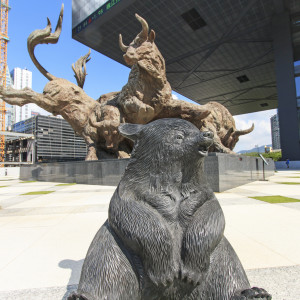December 11 marks an important deadline: according to rules established by the World Trade Organization for Chinese membership, WTO members must stop treating Beijing as a “non-market economy,” meaning the government dictates price, not the market.
For the last 15 years, the United States and other advanced nations have endlessly — and correctly — lectured Chinese officials on the need to follow the rule of law in their economic relations with major trading partners. But all evidence points to the fact that the United States and the European Union will flout their own admonitions and refuse to remove the non-market economy status for China.
In analyzing what’s important here, we must first point out that definitions of market economies — and there are a multitude of them — are peripheral. The core issue is the unlawful intent of some WTO member states to continue to use methodologies that result in outsized tariffs against Chinese goods.
WTO has established rules for dealing with allegedly unfair trading practices — particularly through so-called “anti-dumping rules” against member states that allow their companies to sell goods below the costs of production or at prices below those in the home market.
Because of the size of the Chinese economy, the economic distortions still produced by government intervention, and the role of state-owned-enterprises, the United States and other major trading nations insisted in 2001 that there be an interim arrangement. It allowed other WTO members to ignore Chinese domestic price comparisons and used “constructed” values based upon surrogate prices from comparable national markets economies or other calculated factors of production.
These substitute methods allow for wide administrative “discretion” and abuse through manipulation of price data. The result is anti-dumping margins in the form of tariffs up to 40 percent higher than normal anti-dumping duties.
Chinese accession rules also provided that Beijing could attempt, on a sector by sector basis, to prove that price comparisons were valid and that business or sector was operating in a normal capitalist fashion. These efforts largely failed as it was too tempting for nations to employ the market-restricting non-market economy methods to avoid competition with Chinese companies.
But now, in December 2016, this has produced a scramble to avoid the WTO deadline.
Over the last several years, led by high-priced lawyers who represent uncompetitive companies in key sectors (steel, in particular), some WTO nations have “reinterpreted” the original Chinese accession language to argue that there is an (undiscovered until recently) escape clause in the original agreement that allows them to continue to treat China in some way as a non-market economy — with all the attendant large anti-dumping tariffs. This essay is no place to parse in detail the false reading of the accession document, but the following points are relevant regarding current the US stand:
—Every official statement — whether from the U.S. Trade Representative or in public documents — from 2001 to 2012 affirmed the U.S. position that under the WTO Chinese accession agreement non-market economy status for Beijing would end December 2016. This began with U.S. Trade Representative Charlene Barshefsky, who negotiated the agreement and stated repeatedly that “China’s WTO entry will guarantee our right to continue using our current non-market economy methodology in anti-dumping cases for 15 years after China’s accession to the WTO.” President Clinton made the same statement when notifying Congress of the agreement, as did other Clinton administration figures such as Lawrence Summers, Stuart Eizenstat and William Daley.
—Under President George W. Bush, annual reports to Congress on Chinese compliance with WTO accession obligations all stated that the non-market economy methodology could stay in place for only 15 years.
—Significantly, under President Barack Obama these statements were repeated from 2009 to 2012. Indeed, in a 2009 statement then-Secretary of Commerce Gary Locke went further and stated flatly that “under the terms of its accession to the WTO, China will be declared a market economy in the year 2016.” However, since 2012 the U.S. Trade Representative has reversed its position and now holds that the recent flawed protectionist legal interpretation of the accession agreement is valid.
What makes this reversal strange — and disturbing — is that it flies in the face of a 2011 WTO Appellate Body decision, a case that is known in shorthand as “EC Fasteners,” that seems to directly contradict the new reading of the accession language espoused by the European Union in that case. The WTO body noted that there are two relevant sections of the Accession Protocol at issue, but that the controlling clause determines that the special anti-dumping rules expire in 2016. Specifically, it states: “Paragraph 15 (d) of China’s Accession Protocol establishes that the provision of paragraph 15 (a) expire in 15 years after the date of China’s accession (that is, 11 December 2016).”
Finally, it must be noted that removal of the special anti-dumping rules for China does not leave its trading partners helpless against alleged unfair trade practices. The normal WTO anti-dumping rules themselves allow great discretion and tilt the playing field against exporters, and WTO rules contain effective anti-subsidy provisions. China will remain a prime target of both disciplines.
In a trading world that consists largely of trade in parts and components that pass back and forth across borders numerous times, WTO anti-dumping rules are outdated and truly anti-competitive. However, there is no serious WTO legal defense for continuing non-market economy methodology against Beijing after December 11. Certainly, there is much to criticize — and to attack — in China’s trade and investment policies. But in this case, a deal is a deal and should be honored.

